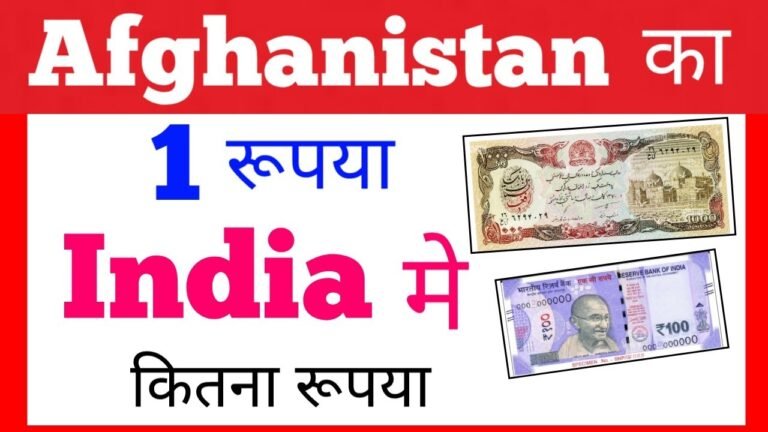
IIT Bubble is Bursting as Lower Placements in IIT Delhi, Bombay, Kanpur Raise Concerns
For decades, the Indian Institutes of Technology (IITs) have been considered the crown jewels of engineering education in India.
A degree from an IIT was all about success, promising youngsters high-paying jobs and fantastic career opportunities. However, this once-golden bubble is showing signs of bursting. Recent trends reveal declining placement rates even among the most prestigious IITs like Delhi, Bombay, Kanpur, and Roorkee.
Industry requirements are shifting in the direction of practical skills and problem-solving, exposing the gaping holes of a highly theoretical IIT curriculum. We look into why the pursuit of an IIT degree is no longer as valuable as it was in the past.
Decreasing Placement Rates: The Alarming Signal
One of the strongest indicators of an IIT degree losing its value is the declining placement rates. Once, IITs like Delhi, Bombay, and Kanpur boasted near-perfect placement records. However, things have changed a lot in recent years. Data from recent placement seasons shows a downward trend in both the number of students placed and the average salary packages offered. For instance:
- IIT Delhi: The placement rates went from 90% in 2018 to approximately 75% in 2023.
- IIT Bombay: Average salary received by graduates remains the same, and students have lower numbers of students receiving core offers from big companies.
- IIT Kanpur: Students who obtain core engineering placements have come down to as low as a percentage; most have been compelled to accept unrelated roles.
Graph: Placement Trends Declining Over Time (2018–2023)
| Year | IIT Delhi (%) | IIT Bombay (%) | IIT Kanpur (%) |
|---|---|---|---|
| 2018 | 90 | 88 | 85 |
| 2019 | 87 | 85 | 83 |
| 2020 | 82 | 80 | 78 |
| 2021 | 78 | 76 | 74 |
| 2022 | 76 | 74 | 72 |
| 2023 | 75 | 72 | 70 |
This trend tells a more significant story: IITs are no longer fulfilling the job market’s needs. Industry is increasingly looking for applicants who have hands-on, practical experience rather than someone who has theoretical knowledge about engineering principles.
A Detached Curriculum from Reality
One of the main objections to IITs has been the inflexibility and the too-theoretical syllabus. While the IITs teach mathematics, physics, and engineering to a very high degree of detail, they often shy away from the practical implications of the skills in day-to-day life.
There are complaints from many alumni that IIT graduates remain unprepared for the challenges at workplaces in the modern fast-changing world, especially areas like data science, AI, and software development.
The tech industry, for example, values skills in coding, software design, and project management, all of which IIT graduates lack behind their peers from more practically oriented institutions or alternative learning pathways.
Additionally, the emerging sectors of renewable energy, robotics, and biotechnology require interdisciplinary knowledge and innovative thinking—something the IIT curriculum hardly nurtures.
The Dark Side of Coaching Culture
Another critical issue in the IIT ecosystem is the high-pressure coaching culture that pervades the lives of aspiring students. From a very young age, students are subjected to grueling schedules, rote learning, and enormous psychological pressure to clear the JEE, often at the cost of their all-round development.
The system rewards exam-cracking skills over genuine curiosity or passion for engineering, producing students who are academically excellent but often lack creativity and problem-solving abilities.
The toll on mental health is alarming. There have been several reports that speak of increased anxiety, depression, and even suicides among IIT aspirants and students. In the pursuit of securing an IIT seat, this larger goal of developing all-rounded individuals capable of excelling in varied environments gets overlooked.
The Emergence of Alternative Pathways
As the limitations of traditional engineering education are becoming more evident, alternative pathways are growing in popularity. Coding bootcamps, online courses, and certification programs provide an accessible and affordable means to gain industry-relevant skills.
These options focus on hands-on learning, giving students the opportunity to build portfolios and demonstrate their abilities directly to employers.
Benefits of Alternative Pathways:
- Cost-Effective: Compared to the exorbitant fees of IITs and the additional costs of coaching, coding bootcamps and online courses are far more affordable.
- Shorter Duration: Most bootcamps and certifications can be completed in a few months, as opposed to the four years required for a B.Tech degree.
- Focused Learning: These programs are designed to teach specific, in-demand skills, eliminating the need for unnecessary coursework.
- Flexibility: Online courses allow students to learn at their own pace, thus making them perfect for working professionals or those who cannot move.
Platforms such as Coursera, Udemy, and edX offer certifications in fields such as data analytics, cloud computing, and machine learning, which are highly sought after in today’s job market. Similarly, boot camps such as Masai School and Scaler Academy focus on coding and software development, boasting impressive placement rates and competitive starting salaries for graduates.
The Way Forward: Skills Over Prestige
With such a scenario unfolding, the traditional route to securing an IIT degree is now no longer the only route, or perhaps even the best route to success. As industries grow and become more complex, the academic prestige of these institutions cannot be the guiding force but rather practical skills and flexibility. Here are some ways aspiring professionals can future-proof their careers:
- Industry Trends: Learn the new skills and technologies that industry demands and gear up in that direction.
- Utilize Online Platforms: There are numerous free and paid courses online through which one can acquire expertise in particular areas.
- Portfolio Building: Work on real-world projects, internships, or freelance assignments to showcase skills to future employers.
- Continuous Learning: The job market is constantly evolving, and one needs to keep re-skilling themselves to be relevant.
Time to Rethink the IIT Dream
While IITs might remain a symbol of academic excellence in India, their relevance in today’s fast-changing job market is increasingly being challenged.
The declining placement rates, outdated curriculum, and the hazardous coaching culture make for an abysmal scenario of students investing years of toil and valuable resources in this traditional route.
The good news is that alternative paths like coding boot camps and online certifications seem to work quite well, with more hands-on practical skills and a closer match for industry needs.
To aspiring engineers and technologists, the message is clear: time to look beyond the IIT dream and focus on what truly matters-developing the skills and experience to thrive in this world.












This entire education system has collapsed. There is no point in looking hole here and there. The educational institutions are being run as factories with faculties as labour. As a result the systems is not creating intellectuals or thinkers anymore, it’s creating only labours. This is a recipe for disaster which We are witnessing
I agree, labours for 4T economy.
This seems, as I think, a biased post. It is a fact that there was a slowdown in market and it affected IITs as well along with other reputed institutions. Affection and a strong desire to be a part of IITs has not declined till date. This year, a record number of aspirants have registered for JEE Mains. IITs are unparalleled right now. It would have been nice if the author had presented the given data of placements by including one or two more equally reputed engineering institution in a comparative manner( year wise).
Well the stats are for last year and I don’t know why it has been posted this year. This slow down was due to recession in us and placements were bad everywhere.
This year it has reached to normal and the placements are pretty good.
Why do we need so many engineering colleges? India needs skill building center. Handing over B.Tech degree to every tom dick and harry is not going to solve innovation problems.
These are all wrong. The situation is worst. The number of core zobs are zero. Almost zero. Only 20 to 30% students apply to placement.
This is peimarily because of two reason
A. MBA people take away the bigger chunk of salary.
B. There is no R&D culture in India
I am 1990 IITM graduate civil. Not just civil, 90% students are no more practicing their own branch. In 25th Aniversary, none wentbto meet their own department.
Supratic Gupta
It seems IIT MADRAS is an exception. Let us learn from Madras IIT. May be it’s location and majority of south Indian students and faculty in the reason.